
Alexander the Great * Warhammer Ancient Battles
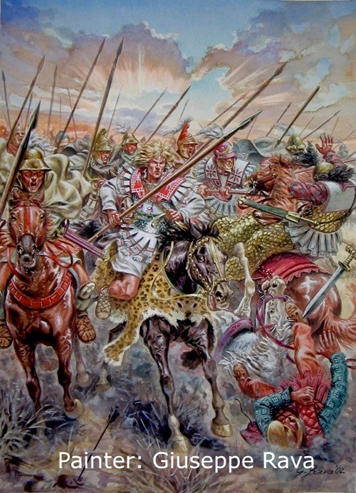
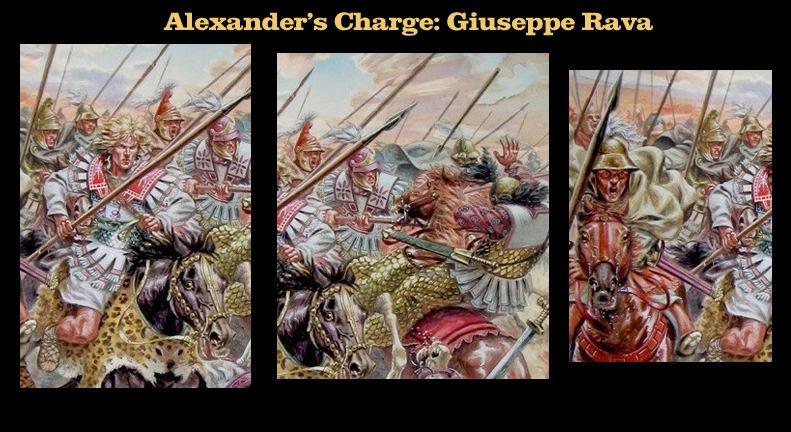
Giuseppe Rava painted a number of excellent covers for Warhammer Historical Wargames publications. He really knocked it out of the park on both the Shieldwall and Alexander the Great books. I was so lucky to have this dramatic art as the cover of my book. I have no doubt the cover art sold out the volume! The image captures the action, speed and hard hitting charges of Alexander riding on his faithful steed Bucephalus, at the head of his Companion cavalry.
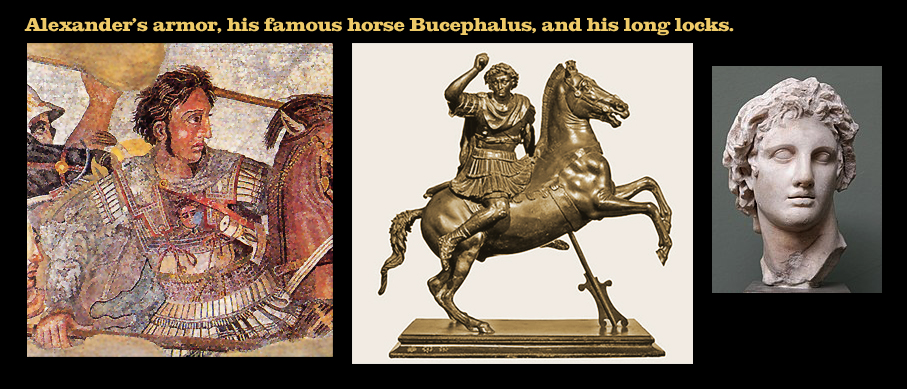
My interpretation of his painting is
this is Alexander at the Granicus. Alexander's first dramatic and
successful battle against the vaunted Persian cavalry. Some sources
say he charged toward evening and defeated the Persian cavalry then
their infantry. The sunset breaking in the clouds signals Alexander's
hasty charge late in the day. Or is it symbolic of the dawn of the
Macedonian Empire?
Since this is his first battle in Persia he would be wearing the long
sleeve tunic that many Macedonian and Thessalian riders are often
depicted in. Later on he incorporated more Persian Empire trappings
and had access to more colorful captured saffron and purple robes and
cloaks. I feel that Giuseppe Rava has captured the buff, brown and
gray cloaks and tunics of Alexander's early riders. He has depicted
Alexander bareheaded with his hair flowing like a rock star. Obviously
a romanticized portrait, but based on historical busts, sculptures,
and the famous "Alexander Mosaic" at the House of the Faun in Pompeii.
Next the art of Jonny Hodgson who filled in the story with some very
nice pencil drawings.
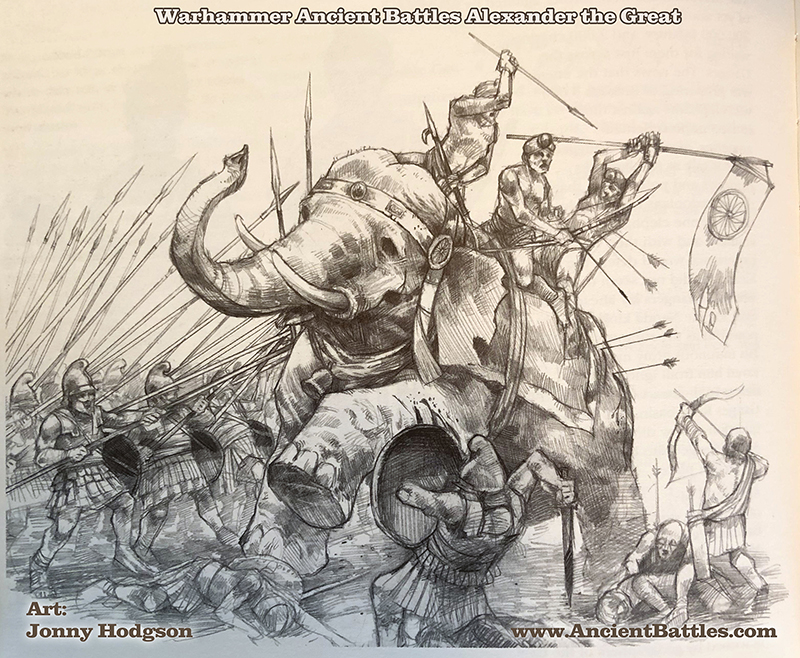
Jonny
carefully followed my rough sketch maps and made these cool "gamer
friendly"
battle maps that show the movements and the general location of troop
types.
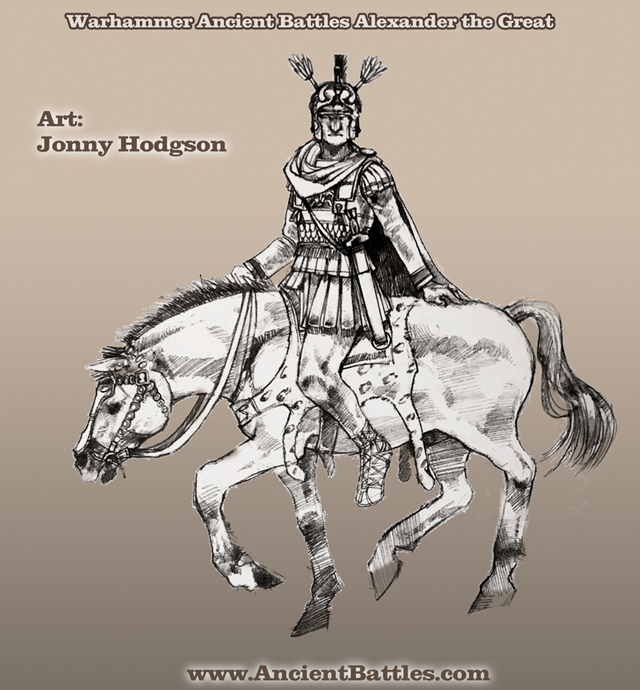
A study of
Alexander on one of his tired war horses after s fierce charge. Horses
were ridden into the ground in battles and pursuits of the foe.
Alexander is shown wearing the triple plumed Lion Helmet seen on coins
and sculptures.
His horse has a detailed representation of the blanket cloth and a
leopard skin shabraque.
The Greek style bridle is also carefully drawn from sources.
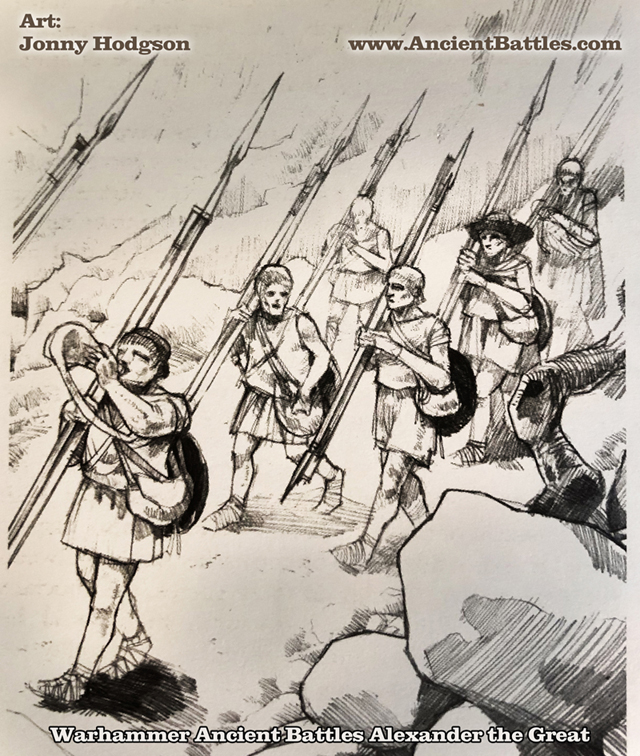
Here Jonny
follows my text, but invents a controversy. Nobody knows for sure if
the split sarissa (pike)
was carried this way. In fact the split pike with a metal sleeve is
based on very little evidence. Twenty years later
we still do not know for sure if this was a common feature. However,
reenactors and new scholarly
attempts to ferret out the answer are ongoing, and currently the
sleeve is winning the fight.
One thing for sure is this drawing does capture the idea that the
Macedonian infantry carried their own supplies,
which made them able to out march their enemies burdened with animal
carts
carrying their supplies. Alexander's army could out ride and out march
every enemy until they reached
the vast plains of the steppe nomads in Bactria/Sogdiana. Even then
Alexander devised flying columns
to hem in the nomads, but it was his longest campaign.
Phalangite reenactors with sarissa sleeves:
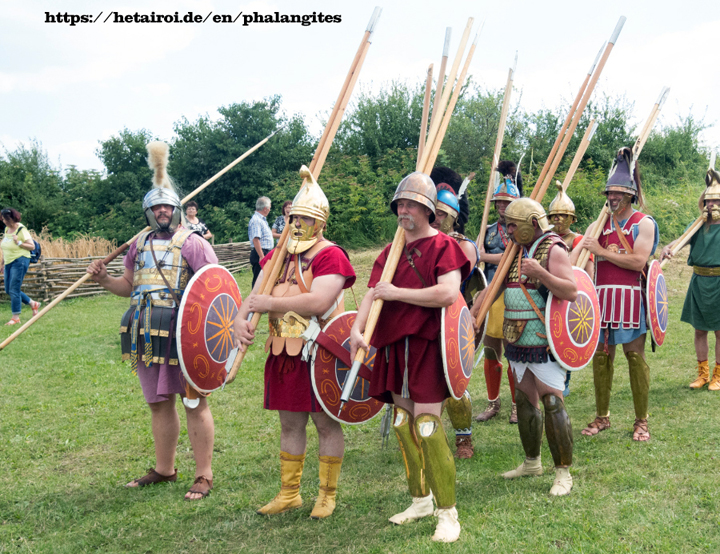
https://hetairoi.de/en/phalangites
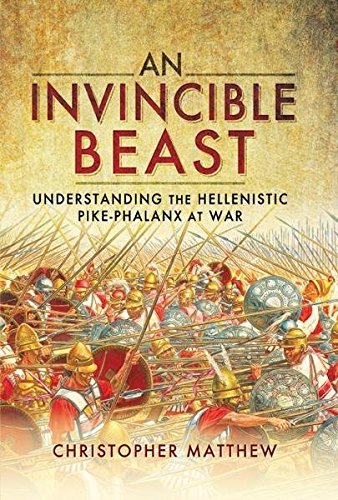
![]()

02/26/23